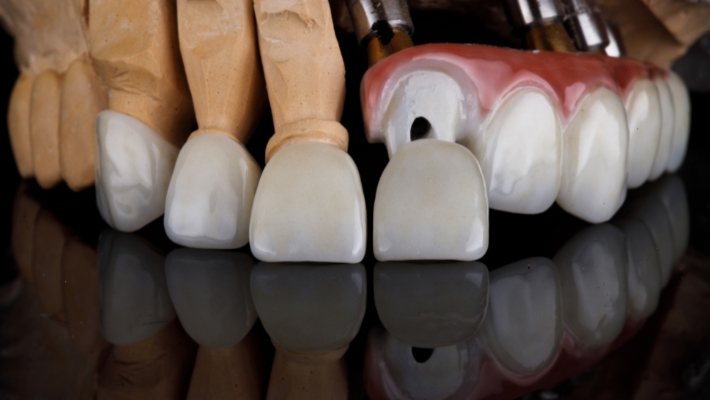
The durability of dental veneers is a growing topic of interest for patients and oral health professionals alike. These thin shells of ceramic or composite, designed to improve the aesthetics of a smile, have become a popular option for those looking to correct imperfections such as chipped, discolored, or misaligned teeth. However, the question of their longevity remains a concern for many. In this article, we will explore in detail what you need to know about the durability of dental veneers.
Dental veneers are thin coverings that are applied to the front surface of teeth to improve their appearance. They can be made from two main materials:
- Ceramic: The most commonly used material for veneers due to its strength and natural appearance.
- Composite: A less expensive alternative that can be applied more quickly but is generally less durable than ceramic.
Veneer placement is a thorough process that typically requires two visits to the dentist. The first visit involves preparing the teeth, which may include light grinding to allow for a proper fit of the veneers. The second visit is dedicated to applying the veneers, which are bonded with a special adhesive.
The lifespan of dental veneers varies depending on several factors, including the material used, the quality of the placement, the patient's oral hygiene, and individual habits. On average, ceramic veneers can last between 10 and 20 years, while composite veneers have a shorter lifespan.
To maximize the durability of your veneers, it is essential to maintain good oral hygiene. This includes regular brushing, flossing, and regular visits to the dentist for professional checkups and cleanings. It is also advisable to avoid habits that could damage the veneers, such as biting on hard objects or grinding your teeth.
Dental veneers offer many benefits, such as improving the aesthetics of the smile and being a relatively quick solution to treat various dental problems. However, they are not indestructible and may require replacements over time. In addition, the installation of veneers is an irreversible procedure, as it usually involves the removal of a small portion of tooth enamel.
Dental veneers are an effective aesthetic solution to improve the appearance of teeth and smile, but their durability depends on several factors, including the type of material used, the patient's oral hygiene, and the skill of the dentist. With proper care, ceramic veneers can last more than a decade, while composite veneers offer a less durable but more affordable option. It is essential to follow your dentist's recommendations and adopt good dental care habits to maximize the life of your veneers.
If you are considering dental veneers, it is important to discuss in detail with Moqadem Dental Clinic to understand the options available, the pros and cons, and what you can expect in terms of longevity.